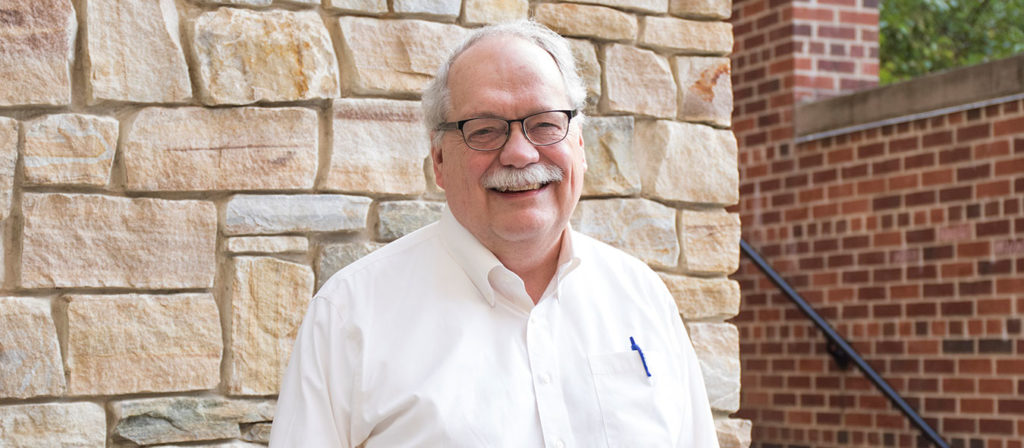LMKR, an international petroleum technology company, has partnered with West Virginia University to expand student and faculty access to industry-leading software.
Beginning fall 2019, the Department of Geology and Geography will implement LMKR’s suite of GeoGraphix® and GVERSE, a gift valued at $8.2 million.
The gift is part of LMKR’s University Grant Program, which offers access to highly developed, industry-leading software used in the exploration and production market. LMKR’s software is expected to be seen when graduates enter the workforce, and this access will prepare students for real-world situations and job opportunities where GeoGraphix and GVERSE are used.
“LMKR is thrilled to partner with WVU and expose students to GeoGraphix and GVERSE,” said Peter Batdorf, LMKR’s senior account executive. “We truly believe these students will continue to build off a strong foundation for the current geoscience workforce. As a result, we are pleased to provide WVU researchers and students with a suite of industry-leading, highly sophisticated tools that optimize the efficiency of petroleum and natural gas exploration and production, giving students an advantage when vying for highly competitive jobs in the oil and gas industry.”
The software will first be used in GEOL 472: Energy Geology. The energy courses at WVU recognize that energy needs will continue to increase as the human population grows and the quality of life increases for the world. To provide these energy needs, humans draw on a wide portfolio of renewable and nonrenewable energy resources.
Taught by Tim Carr, Marshall Miller Professor of Geology and chair of the Department of Geology and Geography, students enrolled in the course examine the technical geologic aspects and science of energy and present a balanced view of humanity’s past, present and future energy resource options.
“We try to expose our students to the data analytics involving the large quantities of geologic and geophysical information required to make technically sound decisions concerning the subsurface,” Carr said. “These decisions can include oil and gas development, location of water resources or environmental remediation.”
The software will also be used in GEOL 575: Imperial Barrel Competition. Students enrolled in the Imperial Barrel Competition course train to test their skills against graduate student teams from all over the world. They receive a real multi-gigabyte set of geological data from the oil industry, analyze it in six weeks to understand the geologic history of a basin and present proposals for locating oil and drilling options.
In addition to coursework, the software will be available for faculty and student research.
Kaitlin Evans, a geology master’s student, will use the software to study well logs from an unconventional, horizontal shale well.
“The software is really helpful when comparing well logs as well as seismic and geographical placement,” Evans said. “I’ve had some experience with other programs, and LMKR is very user-friendly and allows for easy manipulation of data.”
Evans will also spend the summer interning with Cabot Oil and Gas, where she will also use the software.
“Experience plays a big part in being hired after college, so I think being well-versed in this software by the time I graduate will give me a step up when competing for a job,” she said.
LMKR’s University Grant Program supports public universities by giving students access to some of the industry’s most powerful geological and geophysical software packages. The program’s goal is to ensure students have every possible advantage in preparation for their future careers.
The gift was made through the WVU Foundation, the independent, nonprofit organization that solicits and administers private donations on behalf of the University.
